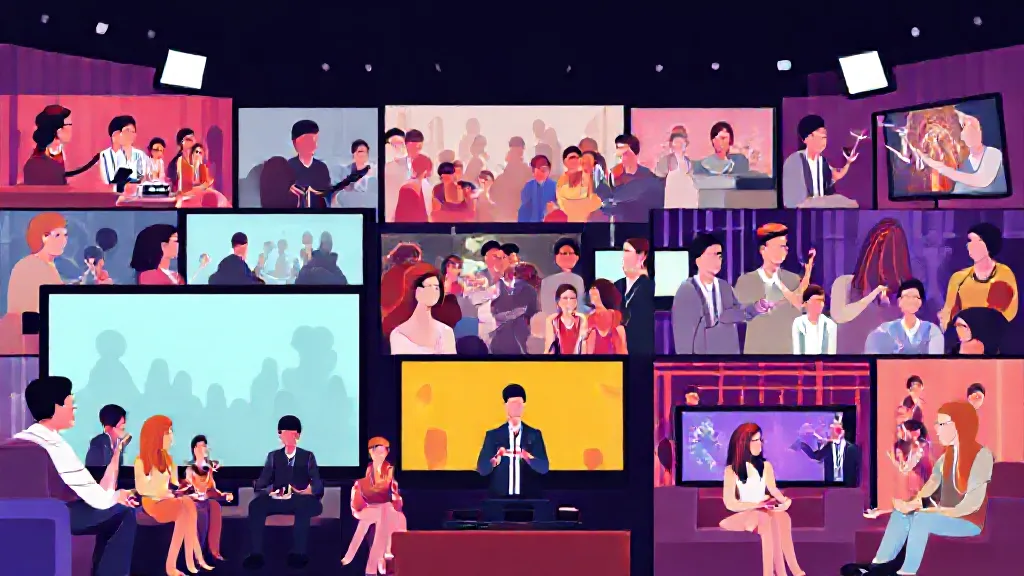Reality television has become a staple of modern entertainment, captivating audiences around the world. The genre, which encompasses a wide range of formats from talent competitions to lifestyle shows, has consistently trended in popular culture. But what exactly fuels this phenomenon? To understand why reality TV shows are always trending, we must explore the psychological, social, and cultural factors that contribute to their enduring appeal.
The Psychology of Reality TV Engagement
One of the primary reasons reality TV shows maintain their popularity lies in their psychological appeal. Viewers often find themselves emotionally invested in the lives of the participants. This connection is facilitated by the relatable nature of the content; audiences see real people facing real challenges, which can evoke empathy and a sense of belonging.
Shows like "The Real World" and "Survivor" tap into universal themes of competition, friendship, and conflict, making it easy for viewers to engage with the narratives on a personal level.
Social Interaction and Shared Experiences
Reality TV also thrives on social interaction. With the rise of social media, viewers are not just passive consumers; they become active participants in the conversation.
Platforms like Twitter and Instagram allow fans to discuss episodes in real-time, share their opinions, and connect with others who have similar interests. This communal experience enhances the enjoyment of the shows, making them more than just entertainment but a shared cultural event. For instance, the phenomenon of "live-tweeting" during episodes creates a sense of urgency and excitement that keeps viewers coming back for more.
Cultural Reflection and Escapism
Reality television often serves as a mirror reflecting societal values, trends, and issues. Programs like "Keeping Up with the Kardashians" and "The Bachelor" not only entertain but also provide commentary on contemporary culture, including beauty standards, relationships, and social dynamics. This reflection can be both enlightening and entertaining, allowing viewers to engage with complex topics in an accessible format.
Furthermore, the escapism offered by these shows allows audiences to step away from their daily lives, indulging in the drama and glamour of others, which can be particularly appealing during stressful times.
The Role of Celebrity and Fame
The allure of fame is another critical factor in the popularity of reality TV. Many participants gain celebrity status, transforming from everyday individuals into household names.
This transformation is often aspirational for viewers, who may dream of being in the spotlight themselves. Shows like "American Idol" and "The Voice" highlight this journey, showcasing talent and the potential for fame. The public's fascination with the lives of these newly minted celebrities keeps viewers engaged, as they follow their journeys beyond the show.
Diversity of Formats and Content
Another reason reality TV remains trending is the diversity of formats available. From cooking competitions like "MasterChef" to dating shows like "Love Island," there is something for everyone. This variety ensures that reality TV can appeal to a broad audience, catering to different interests and demographics.
Additionally, the constant evolution of formats keeps the genre fresh and exciting, as producers experiment with new concepts and themes, ensuring that viewers always have something new to watch.
The Impact of Streaming Services
The rise of streaming platforms has also played a significant role in the continued popularity of reality TV. Services like Netflix and Hulu have made it easier than ever for viewers to access a vast library of reality shows at their convenience.
This accessibility means that even niche reality shows can find dedicated audiences, expanding the reach of the genre. Furthermore, binge-watching has become a common practice, allowing viewers to consume entire seasons in one sitting, which can lead to increased engagement and discussion.
Criticism and Controversy
While reality TV shows are undeniably popular, they are not without criticism.
Detractors argue that these programs promote negative stereotypes and unhealthy behaviors, contributing to societal issues such as body image problems and toxic relationships. However, the ongoing debates surrounding these criticisms often fuel interest in the shows themselves, as viewers are drawn to the controversy. This dynamic creates a cycle where criticism can inadvertently boost viewership, proving that even negative attention can keep reality TV trending.
The Future of Reality Television
As we look to the future, it is clear that reality TV shows will continue to evolve and adapt to changing viewer preferences. The genre's ability to reflect societal changes, embrace new technologies, and engage audiences in meaningful ways ensures its place in the entertainment landscape. Whether through innovative formats, increased interactivity, or addressing contemporary issues, reality television is likely to remain a prominent and trending aspect of popular culture for years to come.
